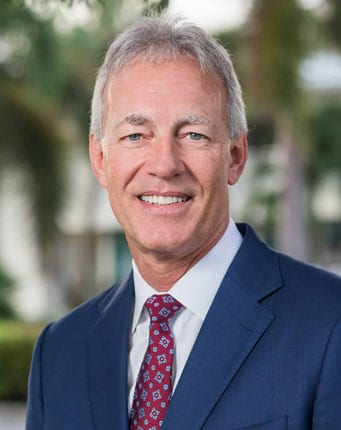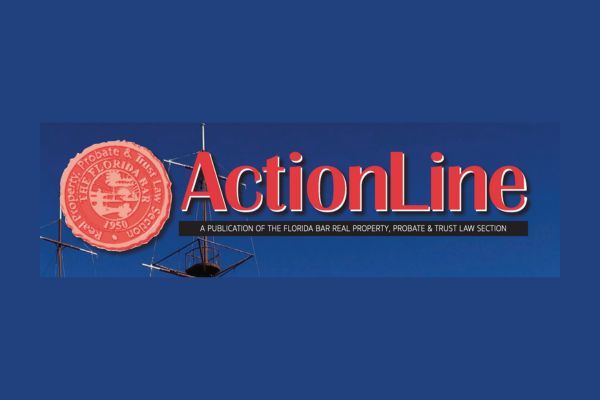An investor’s day of reckoning to pay capital gains taxes to the Internal Revenue Service is typically triggered at the time real estate is sold. This day of reckoning to pay taxes can actually be avoided at the sale date and deferred by an investor indefinitely by the use of a 1031 Exchange. This month, we’re back with some helpful information concerning the use of the 1031 Exchange, an important real estate strategy you may wish to employ.
What is a 1031 Exchange?
Essentially, a 1031 Exchange involves the sale of one investment property, followed by the acquisition of another. Reinvestment of the proceeds from the property sale enables you to defer paying capital gains taxes on those funds. Exploring this strategy may have you celebrating your real estate savvy and improving your bottom line.
The 1031 Exchange is essentially utilized with investment or business properties. It can be a complicated process, and the Internal Revenue Code text for Section 1031 is rather confusing for most people. In addition, not following the process correctly may result in an unexpected tax liability. For that reason, it’s best to assemble the right supporting professional team, which includes working with an experienced real estate attorney to implement the process.
What Types of Properties Qualify for a 1031 Exchange?
As a threshold matter, it’s helpful to begin to identify the properties that you wish to sell and to subsequently acquire. Your primary residence, for example, won’t qualify. This program is only for investment or business use. Properties that do qualify for the 1031 Exchange in Florida include things like raw land exchanged for improved real estate or exchanging a parcel of land for oil and gas royalties. Essentially, any real property that is of “like-kind” to the property you wish to sell qualifies. These properties can be commercial, residential and even rental properties, like a retail center or warehouse facility.
You Must Have a Qualified Intermediary
You will be required to select a qualified intermediary to administer the exchange. The intermediary is the party that will temporarily hold the sale funds from the relinquished property, pending the purchase of your replacement property. It is a mandatory prerequisite that the intermediary you select is an independent party, so your attorney, personal accountant, or investment advisor cannot serve as intermediary. Your attorney will help you select your intermediary, manage the 1031 Exchange, and prepare the documents necessary to facilitate the transactions. Your attorney will also see to the proper deposit of your funds with the intermediary from the sold property following the sale, until you are able to close on the new replacement property. Your attorney will make sure the transactions are completed in compliance with governing tax regulations.
Florida 1031 Exchange Timeline
Once you have your buyer identified, you may enter into a purchase and sale agreement. You will need to add text in the agreement that discloses your intent to use the sale as a part of a 1031 tax-deferred exchange. In addition, the purchasing party must agree to cooperate with you to implement the exchange. Working with a Florida real estate attorney like those at Gould Cooksey Fennell can help safeguard that your agreement is drafted in the proper fashion and with IRS compliance in mind.
You will then enter into an exchange agreement with the intermediary that states you are assigning your rights to the sold property to the intermediary. The intermediary can then assist and act on your behalf throughout the exchange process, from the initial sale, through completing your purchase of replacement property.
Following execution of the purchase and sale agreement and selection of your intermediary, you are ready to refine your search for the property you wish to purchase as replacement property. You may choose up to three potential properties as a possible “like-kind” replacement for the one you wish to sell.
The good news is that you are not restricted to a one-for-one exchange. In fact, you can purchase multiple properties as long as their combined value is equal to or greater than the property you are selling.
Following established timelines and meeting legal deadlines is also a critical component of the 1031 Exchange process. You have up to 45 days following the sale of your property to identify replacement property. The properties selected for replacement must be in writing. Further, the exchange must be completed, and you must close on your replacement property within 180 days. The countdown begins on the day of the sale of your relinquished property, so purchase of your new property must be completed in this timeframe.
The proceeds from your initial sale of relinquished property must be directed to the intermediary. If you inadvertently receive the proceeds yourself, the tax deferred exchange fails, and you will be required to pay the capital gains taxes. Conversely, if the governing regulations are followed, no capital gains will be payable, until such time as the replacement property is sold at some point in the future.
Section 1031 may also be utilized again to defer gains on the future sale of the replacement property, provided that more real estate is acquired in lieu of a cash disposition to the taxpayer.
Consulting with a seasoned, experienced real estate attorney is essential to enjoy the advantages associated with this tax planning strategy. A knowledgeable professional can assist you in satisfying the regulatory requirements and legal procedures to defer payment of capital gains taxes, which are otherwise payable to the IRS without exception.
Our attorneys are available to consult with you to determine if a 1031 Exchange may be a “good fit” for your personal objectives. Contact us to schedule a consultation.
About Chris Marine


Christopher H. Marine is a lifelong Vero Beach resident and a highly respected member of the Treasure Coast community. He serves as Chairman of our firm’s Real Estate Group. Mr. Marine is rated as a “Super Lawyer”, an award given to only 5 percent or less of attorneys in each state. He also has the distinct honor of holding an “AV” rating by Martindale-Hubbell, which is the highest rating issued by the largest and most complete ratings registry of attorneys in the world.
Chris’s connection to the community drew him to develop a real estate law practice, and he now has nearly 40 years of experience in the area of real property.








